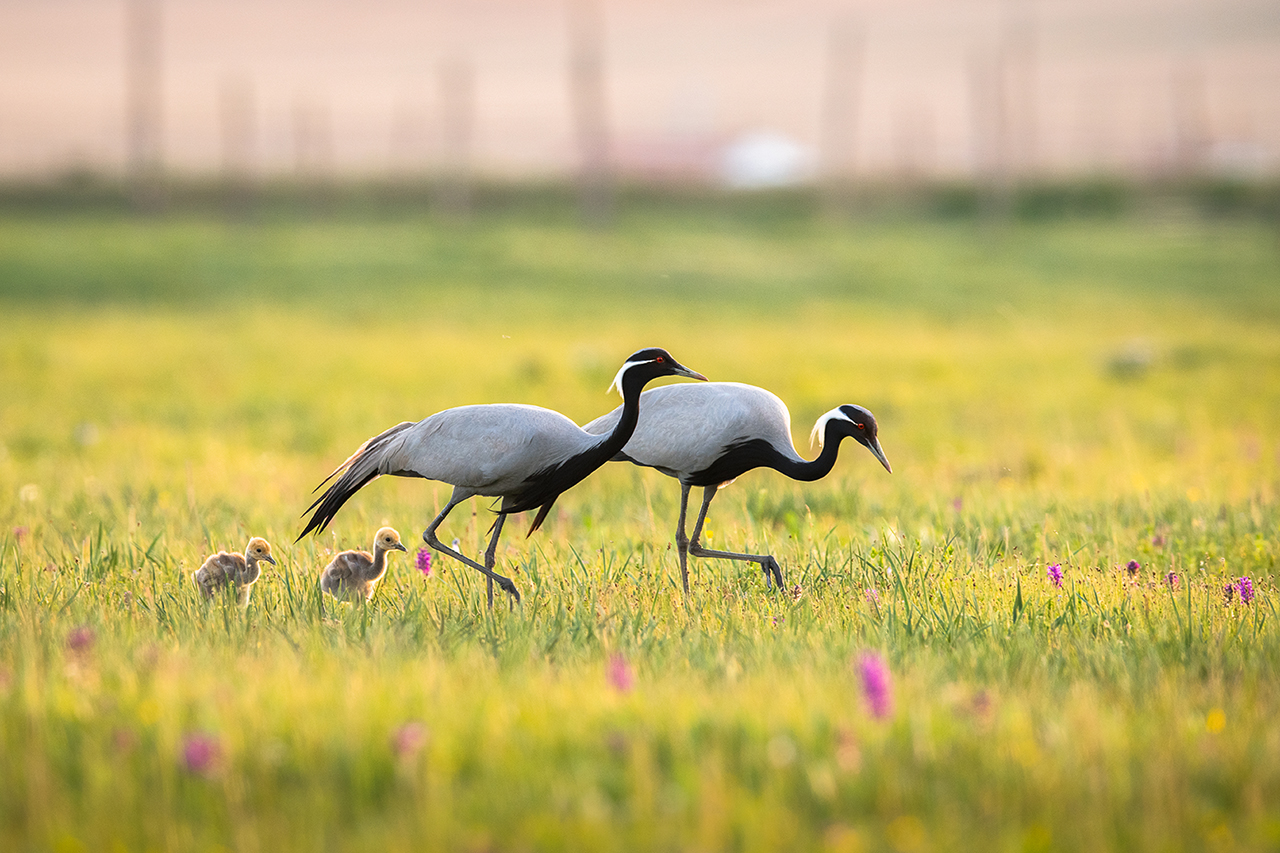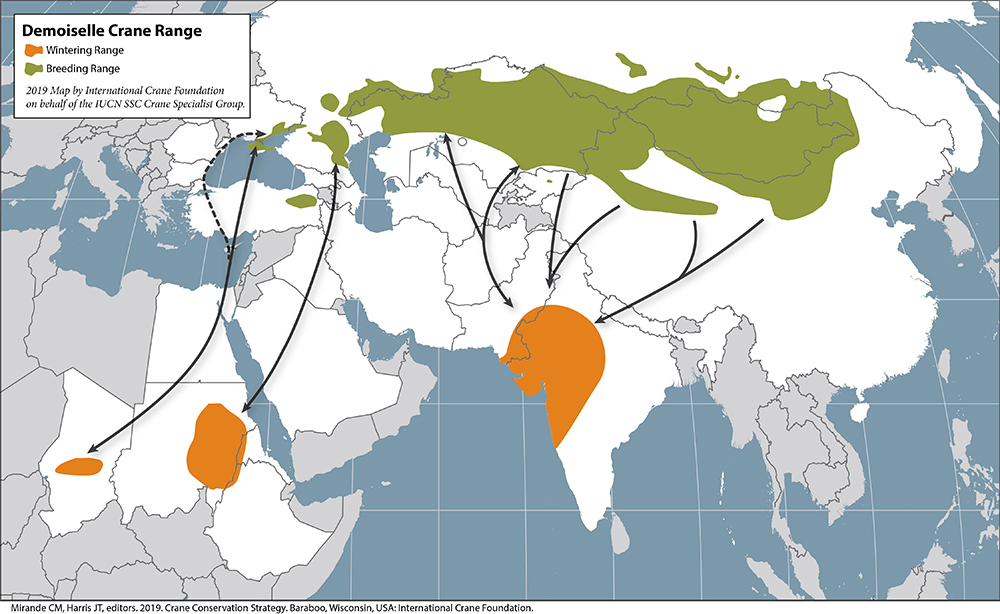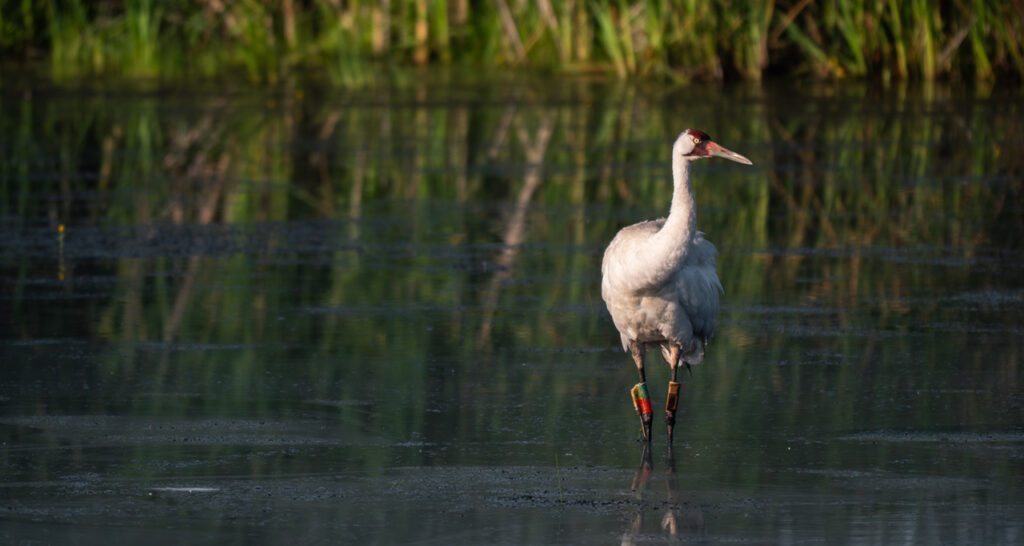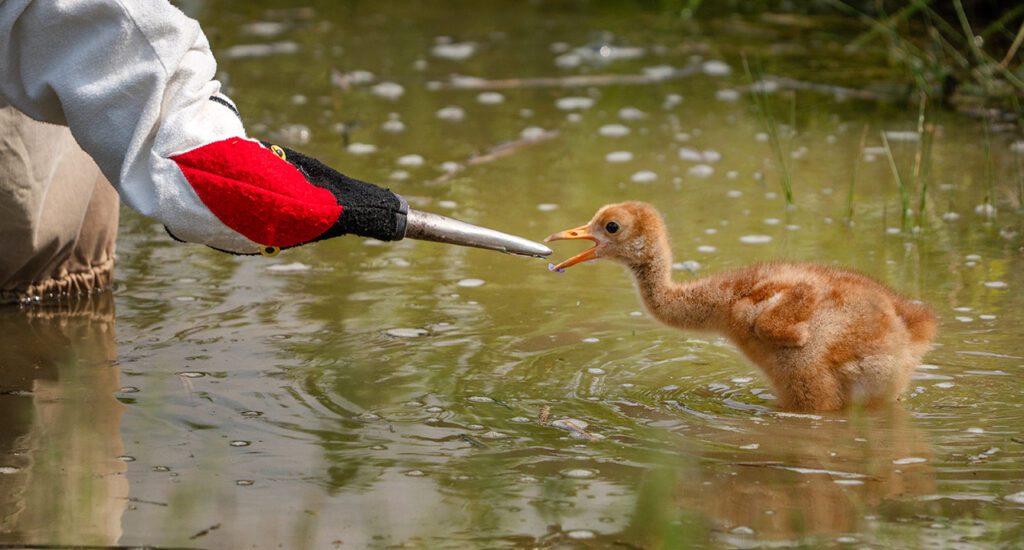Demoiselle Crane

SPECIES: Anthropoides virgo
HEIGHT: 89 cm, 3 ft
WEIGHT: 2 – 3 kg, 4 – 7 lbs
POPULATION: 170,000 – 220,000
TREND: Decreasing
STATUS: IUCN: LC; Cites Appendix II; CMS II
Photo by Ciming Mei
IDENTIFICATION
Adults – pale bluish-grey body plumage, long white feather plume stretches from eye to beyond the head, long black feathers hang from breast, reddish-orange eyes, black legs, short bill; juveniles – pale ashy gray, with nearly white heads, gray tufts on the ear coverts.
RANGE
There are six main populations of Demoiselle Cranes occurring in over 47 countries throughout the world. The three eastern populations occurring in eastern Asia, Kazakhstan/central Asia and Kalmykia (between the Black and Caspian Seas) are abundant, numbering in the tens of thousands. There are also three remnant populations occurring near the Black Sea and Turkey. The two wintering ranges include India and surrounding countries and northwestern Africa centered in Sudan.

DIET
Plant materials, insects, peanuts, beans and other cereal grains and small mammals.
CALL
Listen to Demoiselle Crane calls:
Contact Call | A soft, purring call expressing reassurance and location.
Guard Call | A sharp, single call expressing alarm.
Unison Call | A duet performed by a pair, to strengthen their bond and protect their territory.
THREATS
Habitat loss, including desertification, changes in agriculture practices, human disturbance, dams and water diversions, and illegal take including hunting, trapping and poisoning.
OUR PLAN
The International Crane Foundation is monitoring the status of cranes and their habitats from South Asia to Australia and implementing conservation strategies to address emerging threats. We are:
Monitoring wintering populations of Demoiselle Cranes in South Asia and, with partners, identifying threat mitigation strategies to secure the future of this species. For example, we are working with colleagues in Sudan to assess the status and population of wintering Demoiselle Cranes in the vast Sudd wetlands.
Learn more about the Demoiselle Crane:

